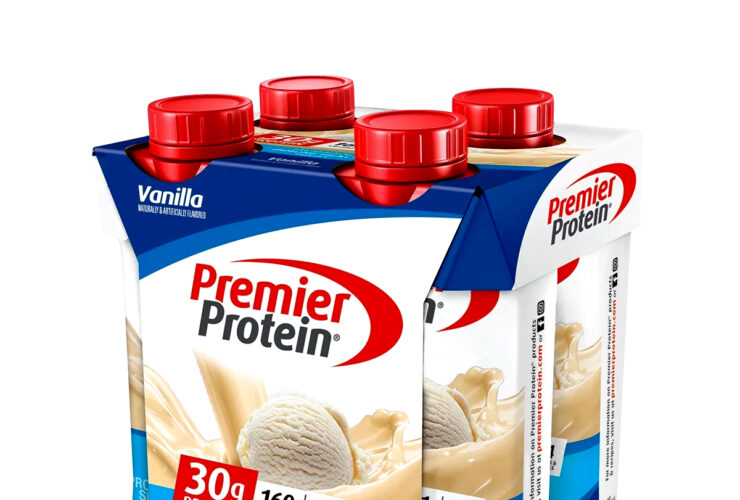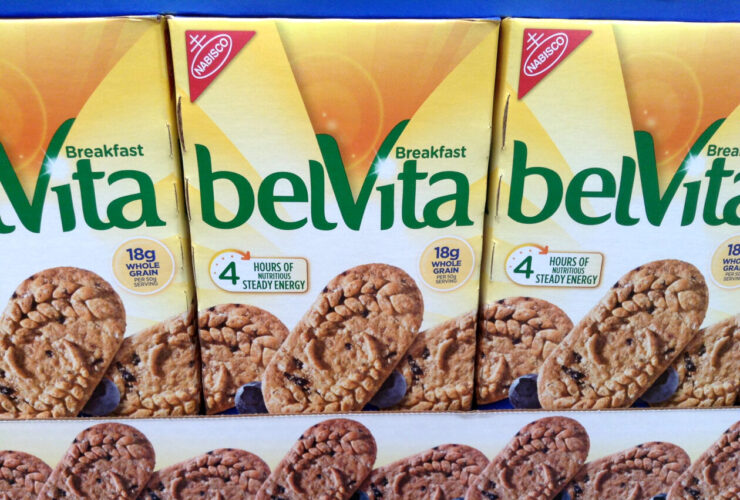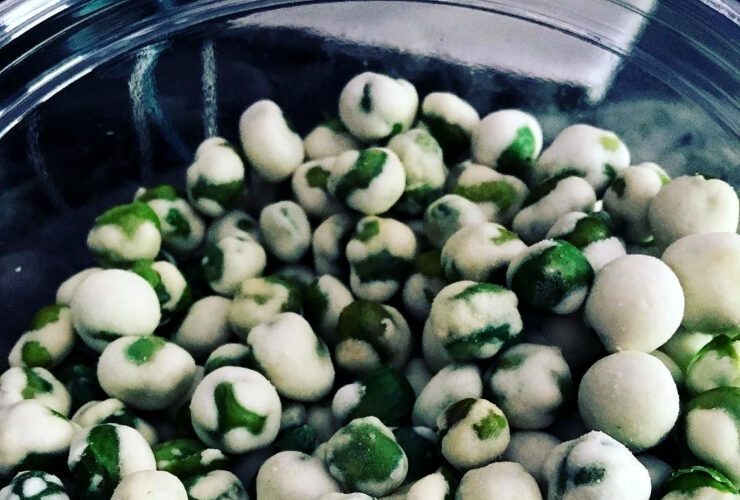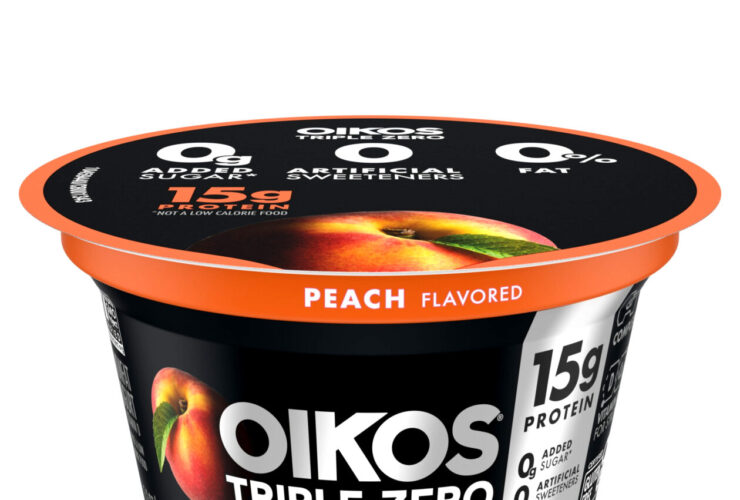Introduction
A careful approach to nutrition is necessary for managing diabetes because the foods one eats significantly impact blood sugar regulation and general health. Among the plethora of dietary guidelines, one frequently asks, “Is corn good or bad for people with diabetes?” This question prompts a more thorough investigation of the subtle nutritional characteristics of corn and its possible influence on blood glucose management.
Although maize has long been a mainstay in many culinary cultures around the globe, its usefulness for people with diabetes is still up for dispute. While some claim that its high glycemic index and carbohydrate content could make it difficult to control blood sugar, others praise its nutritional value and diet adaptability.
By exploring the scientific data on maize consumption and its effects on diabetes control, our expedition seeks to clarify this debate. Using an extensive examination of its nutritional characteristics, glycemic impact, and pragmatic factors, we aim to enable people with diabetes to make knowledgeable food decisions that correspond with their health objectives.
Come along as we explore the intricate relationship between maize and diabetes, revealing surprising facts that defy accepted knowledge and providing helpful advice for maximizing dietary approaches in the quest for improved health. Let’s work together to uncover the truth about maize and how it affects diabetics’ lives.
Is Corn High in Sugar?
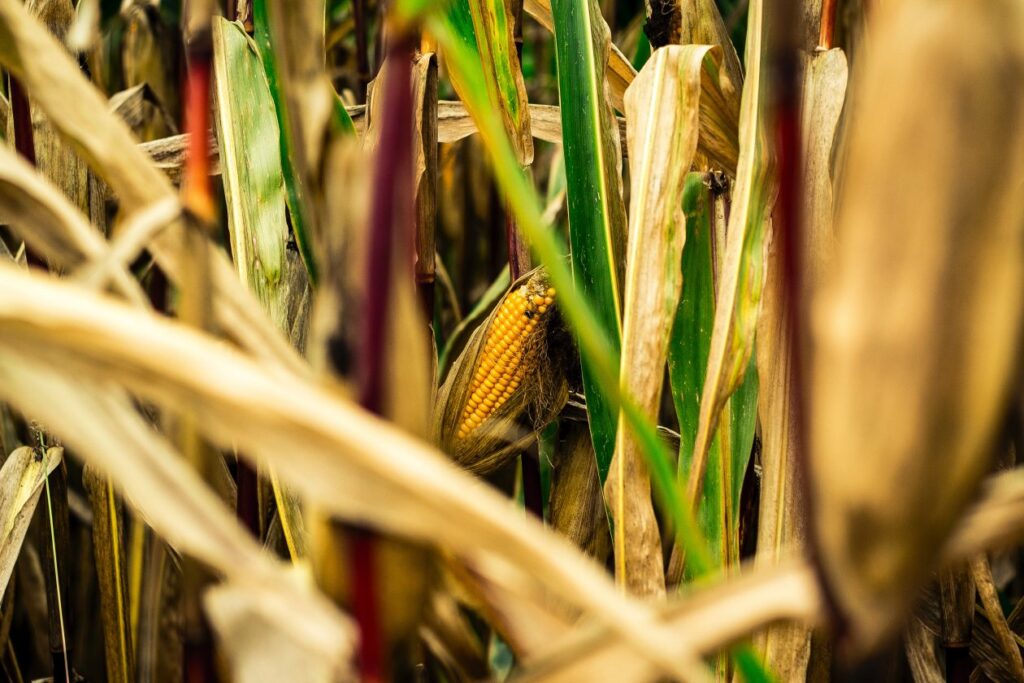
While corn is a starchy food with naturally occurring sugars, the amount of sugar in it varies depending on how it is prepared. Corn offers essential elements like fiber, vitamins, and minerals in addition to carbohydrates, including sugars. For those who are controlling their diabetes or watching how many carbohydrates they eat, knowing how much sugar is in maize is essential.
Corn has less sugar than other starchy meals like potatoes or white bread. But corn’s sugar content varies depending on how it is eaten. For example, raw corn on the cob usually has less sugar than processed corn goods like corn syrup or sweetened corn cereals. Therefore, to control their blood sugar levels better, people with diabetes should prefer whole, fresh maize options over processed or sweetened corn products.
Corn has many health benefits, but when including it in a diabetic diet, portion control is essential. Even though corn naturally contains carbohydrates, eating a lot of it might cause blood sugar levels to soar. As a result, those who have diabetes should watch how much they eat and try to include corn and other nutrient-dense foods in balanced meals. People with diabetes can reap the nutritious advantages of maize while controlling their blood sugar levels by eating whole, fresh corn and exercising portion control.
In conclusion, although maize naturally contains sugars, its total sugar concentration is somewhat low compared to other starchy meals. People with diabetes can safely benefit from the nutritional advantages of corn as part of a balanced diet by choosing whole, fresh corn alternatives and exercising portion control. Speaking with a healthcare professional or registered dietitian is imperative to create a customized diet that fits each person’s nutritional needs and preferences.
Glycemic Index of Corn Products

For those who manage diabetes, knowing the glycemic index (GI) of different maize products is crucial because it immediately affects blood sugar levels. The GI calculates how food-based carbs increase blood sugar about pure glucose, which has a GI of 100. Corn products’ GI ratings can differ significantly based on how they are processed and prepared.
In moderation, fresh corn on the cob might be a good choice for those with diabetes because its GI is generally moderate, ranging from 52 to 60. However, due to their refined nature, processed maize products like cornflakes and corn chips may have a higher GI, which could result in abrupt rises in blood sugar levels.
For people with diabetes, selecting low-GI maize alternatives is essential to sustaining stable blood sugar levels. Low-GI foods provide longer-lasting energy levels and gradually cause blood sugar levels to rise due to slower digestion. Those with diabetes can control their blood sugar better by choosing whole corn kernels, tortillas, or freshly made corn dishes over highly processed corn items.
It’s critical to pay attention to portion sizes, the overall composition of meals, and the GI of maize products. You may reduce blood sugar surges and slow digestion by serving maize with protein-rich foods, healthy fats, and fiber. Controlling portion sizes is also essential because even low-GI foods can affect blood sugar levels if ingested in excess.
People with diabetes can reap the nutritional benefits of maize while efficiently controlling their blood sugar levels by emphasizing low-GI corn alternatives, balancing meal composition, and adopting portion management. Personalized advice on including maize in a diabetic-friendly diet plan can be obtained by speaking with a trained dietitian or healthcare professional.
Nutritional Value of Corn
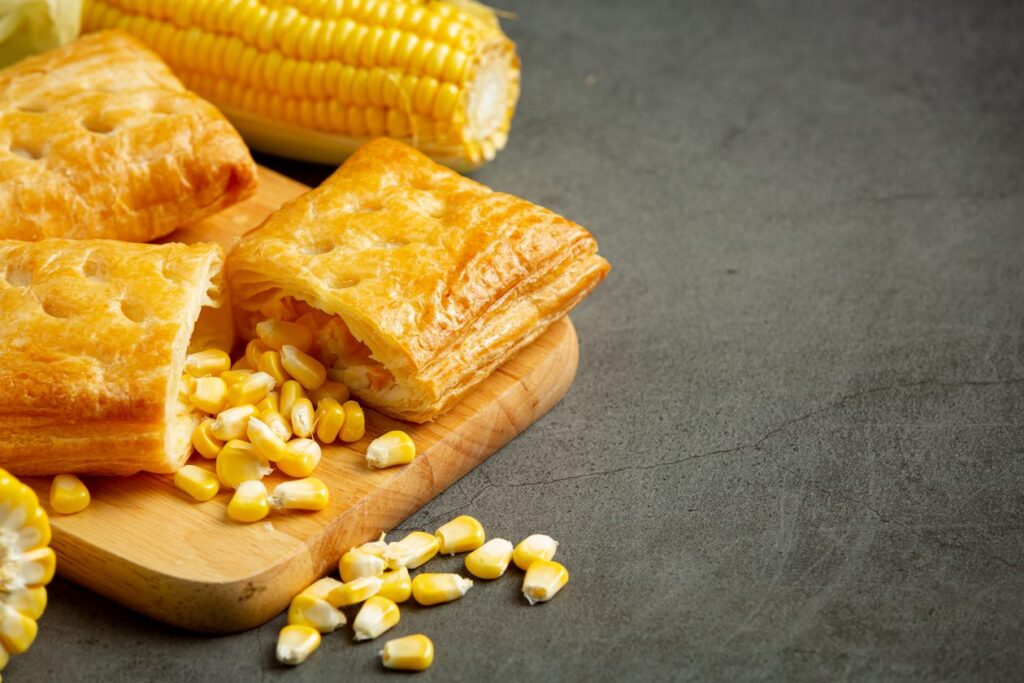
A typical food in many cultures, corn provides a range of vital elements that support general health. In addition to being high in carbohydrates, corn has fiber, vitamins, and minerals that are good for people with diabetes. One cup of cooked corn includes about 123 calories, 27 grams of carbs, 3 grams of fiber, and trace amounts of protein and fat. Though corn is high in carbohydrates, its fiber content is essential for controlling blood sugar levels in people with diabetes.
Fiber is well known for its capacity to reduce blood sugar increases that occur quickly after meals by slowing down digestion and absorption. Corn’s soluble fiber creates a gel-like substance in the digestive tract, which slows down the stomach’s emptying and gradually encourages the gradual release of glucose into the bloodstream. People with diabetes may be able to keep their blood sugar levels more consistently stable all day because of this consistent flow of glucose.
Corn is high in fiber and includes vital vitamins and minerals that are good for overall health and well-being, such as vitamin C, B6, potassium, and magnesium. Although maize contains carbohydrates, when eaten in moderation, its moderate GI and high fiber content make it a good choice for people with diabetes. But it’s essential to consider corn’s whole nutritional profile and include it in a well-balanced diet of nutrient-rich foods.
While reaping the nutritional advantages of this adaptable grain, people with diabetes can better control their blood sugar levels by including corn, lean meats, healthy fats, and non-starchy vegetables in their meals. A customized diabetes diet plan that suits each person’s needs and tastes can be created by speaking with a certified dietitian or other healthcare professional.
Different Forms of Corn and Their Impact on Diabetes
Understanding how different types of maize affect blood sugar levels is crucial when deciding if corn suits people with diabetes. People frequently encounter three varieties of maize: canned, frozen, and cooked. Different processing techniques are applied to each form, which may impact the nutritional makeup and possible effects on diabetes treatment.
Canned Corn: Although canned corn is easily accessible and convenient, it could have additional sugar and salt added for flavor and preservation. Canned corn should be consumed with caution by people with diabetes since high sodium and added sugar content can interfere with blood sugar regulation. Choosing low-sodium or sugar-free types and washing canned maize well before using can all help alleviate these worries.
Frozen Corn: To maintain its nutritional value, frozen corn is usually processed soon after it is harvested. Frozen corn typically has fewer additives and is still naturally sweeter and texture-richer than canned corn. Choose primary frozen corn varieties free of sauces or seasonings to minimize additional sugars and sodium.
Boiled Corn: For people with diabetes, boiled corn can be a nutrient-dense option if it is prepared without adding fats or sugars. While adding fewer harmful additives, boiling maize in water preserves its natural flavor and nutrition. Boiled corn contains dietary fiber, vitamins, and minerals that are good for blood sugar control and general health when consumed in moderation as part of a balanced meal.
In summary, maize is a food that can be a part of a diabetic diet, but how it is ingested is essential. Choosing less processed types and steering clear of additional sugars and salts will allow people with diabetes to reap the nutritious benefits of corn without sacrificing blood sugar regulation. As with any dietary decision, moderation is vital. Corn should be included in a well-rounded diet emphasizing complete, nutrient-dense foods. For individualized nutritional advice, people with diabetes are always advised to speak with a healthcare professional or registered dietitian.
Corn Flour and Diabetics
It’s essential to understand the effects of various food choices when treating diabetes. One frequent ingredient in many culinary applications, corn flour, raises concerns about whether or not it is suitable for people with diabetes. Analyzing its nutritional makeup and glycemic index can provide important light on how it affects blood sugar levels.
Glycemic Index (GI) and Nutritional Content: Starch, most corn flour, impacts blood sugar levels. Particle size and processing techniques affect a food’s glycemic index, which indicates how quickly blood sugar levels rise. Even though some research shows that maize flour has a moderate to high glycemic index, it’s also essential to consider its nutritional value. Compared to whole grains, corn flour has less protein and fiber. Therefore, it might be less helpful in controlling blood sugar levels.
Moderation and Substitutes: People with diabetes must consume maize flour in moderation. Choosing whole grain substitutes such as almond or wheat flour can reduce blood sugar spikes and increase nutrition and fiber content. Furthermore, lowering the blood sugar impact of maize flour can be achieved by combining it with vegetables, healthy fats, and protein sources in balanced meals. It is recommended that people with diabetes seek individualized dietary advice from a certified dietitian or other healthcare specialist.
In conclusion, although maize flour has a low glycemic index and a low nutritional profile, it can be a part of a diet suitable for people with diabetes when ingested in moderation. Choosing maize flour and whole grain substitutes in well-balanced meals can help people with diabetes control their blood sugar levels efficiently. Maintaining general health and managing diabetes depends on prioritizing a varied and nutrient-rich diet.
Popcorn: A Diabetic-Friendly Snack?
Popcorn is a possible healthy snack for people controlling their diabetes. It’s a low-calorie option that tastes good because of its airy and light feel. To guarantee that it continues to be diabetic-friendly, it is crucial to comprehend portion amounts and preparation techniques.
Examining Popcorn as a Snack Option: Popcorn is a whole-grain snack that has fiber, which helps control blood sugar levels and facilitate digestion. Because it is low in fat and calories compared to many other snack options, air-popped Popcorn is an excellent option for those with diabetes. Moreover, Popcorn is gluten-free, which is advantageous for people with celiac disease or gluten sensitivity.
Portion Sizes and Preparation Techniques: Popcorn is a healthy snack, but it’s important to watch portion sizes, especially if you have diabetes. Avoiding highly flavored or buttered types is essential because they frequently include extra sugars and bad fats. Alternatively, go for plain air-popped Popcorn and add flavorings like herbs or spices. Furthermore, it would help if you use caution when handling microwave popcorn packs because they could contain a lot of sodium and artificial additives.
Popcorn in a Diabetes Diet Plan: Moderation is crucial when incorporating Popcorn into a diabetic food plan. To assist in controlling blood sugar levels, it can be eaten as a stand-alone snack or combined with foods high in protein, such as cheese or almonds. Preparing ahead of time and dividing up popcorn portions will help you avoid overindulging. Popcorn can be a filling and diabetic-friendly snack choice when eaten carefully and in moderation.
In conclusion, if chosen and cooked carefully, Popcorn can be a healthy snack for those with diabetes. Because it’s whole grain and low in calories, it’s a healthy way to satiate cravings without raising blood sugar levels. Popcorn can be included in a healthy diet plan for people with diabetes as long as quantity quantities are monitored and harmful additives are avoided.
Is Corn Good for Diabetics?
A. Short Answer:
Yes, corn can be included in a diabetic diet when consumed in moderation and with attention to preparation methods. It offers various nutrients and can be part of a balanced meal plan for individuals with diabetes.
B. In-Depth Analysis:
Corn, a staple food in many cuisines worldwide, offers several nutritional benefits. It contains vitamins, minerals, and fiber essential for overall health. However, its impact on blood sugar levels depends on portion size, processing, and cooking methods.
One concern regarding corn consumption for diabetics is its carbohydrate content. Carbohydrates can raise blood sugar levels, so individuals with diabetes must monitor their intake. However, corn’s glycemic index (GI) varies depending on its form and preparation. For example, whole corn kernels have a lower GI than processed corn products like corn flakes or chips. Choosing less processed forms of corn and pairing them with protein and healthy fats can help mitigate their impact on blood sugar levels.
Furthermore, portion control is vital when including corn in a diabetic diet. While corn is nutritious, consuming large portions can lead to spikes in blood sugar levels. Sticking to recommended serving sizes and balancing corn intake with other nutrient-rich foods is advisable.
In closing, corn can be part of a diabetic diet when consumed mindfully. Opting for less processed forms of corn, monitoring portion sizes, and pairing corn with protein and healthy fats can help manage blood sugar levels. As with any food, moderation and balance are key. By incorporating corn into a well-rounded meal plan, individuals with diabetes can enjoy its nutritional benefits while maintaining their blood sugar levels.
Conclusion
In conclusion, there are several variables to consider while analyzing the complex link between corn and diabetes. Because of its nutritious value, maize can be included in a diabetic’s diet; nonetheless, those with the disease should consume corn in moderation and with awareness.
Throughout this conversation, we’ve emphasized the significance of comprehending corn’s glycemic index (GI) and how variations in corn can impact blood sugar levels. Because less processed corn has a lower GI than highly processed corn products, people with diabetes may benefit from choosing less processed corn, such as whole kernels or freshly cooked corn on the cob.
Furthermore, when adding corn to a diabetic diet plan, quantity control is essential. Blood sugar levels can be more successfully managed by keeping an eye on serving quantities and balancing maize consumption with other nutrient-rich foods like lean proteins and healthy fats.
People with diabetes must comprehensively make dietary decisions, emphasizing lifestyle and overall nutritional balance. Speaking with medical experts, such as certified diabetes educators or registered dietitians, can offer individualized advice and support for managing diabetes with food.
In conclusion, maize can be a part of a diabetic diet, but moderation, quantity control, and the overall nutritional balance must be given priority. People with diabetes can optimize their eating habits to promote their overall health and well-being by making educated decisions and obtaining advice from healthcare specialists.
Reference
Roy, Nibedita. 2023. “Is Eating Corn Safe for People with High Blood Sugar?” The Times of India. Times of India. August 7, 2023. https://timesofindia.indiatimes.com/life-style/food-news/is-eating-corn-safe-for-people-with-high-blood-sugar/photostory/102499023.cms?picid=102499039.
Frothingham, Scott. 2019. “Diabetes and Corn Consumption: Is It OK?” Healthline. Healthline Media. February 2019. https://www.healthline.com/health/diabetes-corn.
“Can Diabetics Eat Boiled Corn?” 2019. Vinmec.com. 2019. https://www.vinmec.com/en/news/health-news/nutrition/can-diabetics-eat-boiled-corn/.
https://www.parashospitals.com. 2022. “10 Food Items to Avoid in Diabetes.” Parashospitals.com. 2022. https://www.parashospitals.com/blogs/10-food-items-avoid-diabetes.
Was this helpful?

Joseph Emb, RDN
Founder of StyleVitally.com | Registered Dietitian & Wellness Advocate
What I Cover:
I’m passionate about connecting nutrition science and everyday wellness to help people live healthier, more vibrant lives. I write about evidence-based nutrition, mindful eating, sustainable lifestyles, and holistic well-being at StyleVitally.com.
My Background:
The University of Texas in Austin, where I earned my Dietetics diploma, laid the groundwork for my nutrition and health career. My training and hands-on experience taught me the science and art of using nutrition to enhance health and well-being.
Professional Journey:
I’m an RDN with lots of experience. I’ve helped people seeking tailored nutritional recommendations in clinical settings and community outreach programs. My constant learning and professional development ensure that my recommendations are always based on the latest evidence.
Ethical Commitment:
My practice prioritizes integrity. My content is transparent and objective, following the most significant ethical standards. I can give my audience unbiased advice because I’m not affiliated with food businesses or industry associations. I want to help people make informed health decisions that match their values and ambitions.
Join Me on the Wellness Journey:
Join me on the path to vitality and well-being, whether facing nutritional issues, seeking sustainable lifestyle changes, or simply wanting a better, happier you. We’ll discover how diet, mindfulness, and holistic well-being can maximize your potential.




